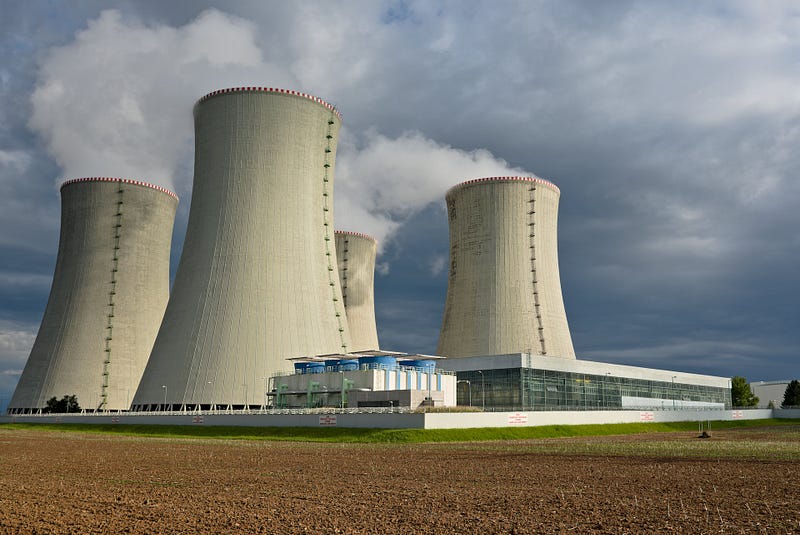Here’s another, often overlooked reason why nuclear energy is a bad thing

Germany’s decision to close its last nuclear plants in April, in contrast to pro-nuclear France, highlights “the other problem” of nuclear energy: not only is it neither renewable nor clean, it’s very dangerous (there have been several hushed up incidents; while a single reactor creates up to 30 tons of high-intensity waste that nobody knows what to do with. And just as importantly, it distorts electricity markets.
Once commissioned, a nuclear power plant cannot be shut down without incurring enormous costs. This results in a contribution to the energy fabric of a country that is virtually constant, predictable and generally considered to be cheap. In reality, the price assigned to nuclear power is a trap, because it ignores the fact that the “payback time” for a nuclear power plant is between 10 and 18 years, depending on the quality of the uranium ores used as fuel. This means that a nuclear power plant must operate for at least a decade before all the energy consumed to build and fuel it has been recovered and the plant starts producing net power. That figure that is reduced to one year for wind power and less than three for solar power.
But beyond the considerations about its danger or its cost, which is already two huge elephants in the room, we have something else: what effect does having huge amounts of guaranteed power have on the energy supply of a country? Quite simply, alternative energy sources that are both genuinely cheaper andrenewable are discouraged.
Germany is no longer dependent on nuclear power, so more investment is going into renewable energy generation and storage, while at the same time it is importing larger amounts of clean energy from its Nordic neighbors.
In contrast, investing in renewables in France, given that its market is steadily supplied by nuclear power, is disincentivized, virtually preventing the development of a generation fabric that provides cheaper, clean and hazard-free energy.
France has one of the lowest per capita emissions rates of all developed countries, but it will soon be forced to maintain its coal-fired plants until 2038, instead of being able to phase them out much earlier (in 2030 as Germany proposes). Why? Because the availability of nuclear energy stymies renewable initiatives, leaving very little space in the market for the commercialization of the energy they generate.
What has happened in Germany since the last nuclear power plant was shut down? Quite simply: the output of coal-fired plants has remained stable or even declined over the summer, and the gap left by nuclear power has been filled by renewable energies, either generated domestically or imported from nearby Scandinavia. The extension of the life of German nuclear power plants, as a recent analysis indicates, was not only not necessary to ensure energy stability, but would not have contributed to lowering emission levels.
This conclusion, which disproves the arguments of the pro-nuclear lobby, is due precisely to the effect that the stable production of nuclear power plants has on the electricity market: extending the useful life of nuclear power plants, in addition to the huge drain on the public purse (what government can ignore the blackmail threats about security and safety?) would have seriously discouraged investment in renewable energies in the country.
Nuclear power plants and their inflexible output cause congestion in the power grid and in domestic markets, and that is precisely the opposite of what is needed for wind and solar power to make sense. In other words, nuclear power plants and their extreme rigidity are incompatible with the modern, flexible grid systems we will have in the future, which will be supplied by renewable energies. No dangers, no waste problems and no periodic injections of public money.
This is why Europe’s ACER, the Agency for the Cooperation of Energy Regulators, wants to modify the intraday gate opening schedules for different capacity calculation regions, due to the potential of offering spare day-ahead inter-zonal capacity (which now fluctuate more widely due to the greater variations experienced by renewable generation systems). Whether that market is attractive to companies offering renewables is an inverse function of the amount of nuclear power offered in each market: less nuclear power means more gaps to fill with cheap, clean, safe power, and more incentives for companies investing in renewables to recoup their investment.
Even in pro-nuclear France there is strong opposition to the development of a new nuclear program, not from the public, but by eight hundred relevant scientists in the field. The reason is clear: more nuclear power plants, in addition to greater danger and a major waste problem which, let’s not deceive ourselves, no one has been able to solve satisfactorily, implies a delay in the development of the energy generation that we really need in the future: renewable energy.
The economic viability of a nuclear plant is very difficult to demonstrate if we take into account all the costs involved. Since the inception of commercial nuclear power, the industry has been propped up by huge government subsidies, which is what the companies involved actually live off. Putting more tax-payers’ money into nuclear power will make it neither safer, cleaner, nor cheaper in real terms. But in addition, such subsidies to a mature industry distort electricity markets by giving nuclear power an unfair and undesirable advantage over truly clean and safe energy alternatives, and discourage the investment that really defines the future of energy.
The only people who want more nuclear power are those who make their living from it. Make no mistake and don’t buy their arguments or believe what their lobbyists say. It’s all a pack of lies.
(En español, aquí)






